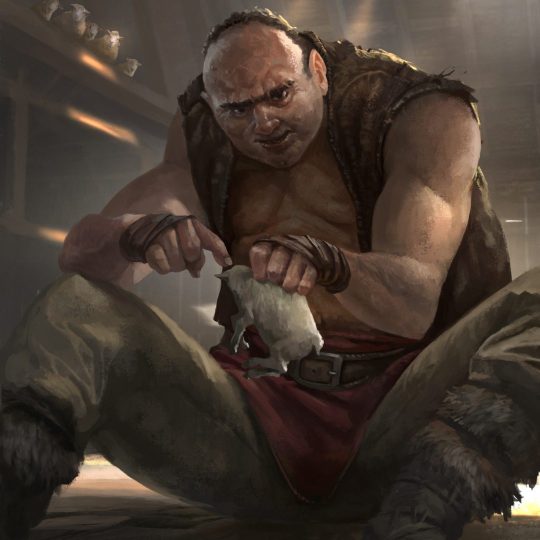
Game Master Tips- The Power of Long Rest, Short Rest, and Random Encounters in 5E D&D
 Dungeon Master: “You’ve been fighting and slaying monsters all day. Your caster’s spells are nearly depleted, all of you bare wounds, and you’ve just stabilized the halfling rogue who is unconscious. What do wish to do?”
Dungeon Master: “You’ve been fighting and slaying monsters all day. Your caster’s spells are nearly depleted, all of you bare wounds, and you’ve just stabilized the halfling rogue who is unconscious. What do wish to do?”
The players of the adventuring party nearly in unison: “We make camp.”
In every edition of Dungeons and Dragons from way back when it was call Advanced Dungeons and Dragons to now 5E D&D the- we rest, make camp, or head back to town to recover has always been a very important part of the game in some fashion or another.
So finally the Wizards of the Coast team has made it mechanically part of the game with 4th edition Dungeons and Dragons. It’s a great tool for both Dungeon Master and player alike. The rest mechanic breaks up what the players and monsters are capable of throughout the day. Long rest really is code for using an ability X amounts of time per day. Where as the short rest ability is use it as many times as your adventuring party can find time to kick up their feet for an hour or two to recover.
Game Master Tips Vid
Game Master Tips- The Rest Mechanic as a Tool
What use is this fairly new innovation to the game to us you may ask? The rest mechanic is a way for a DM or GM to control the pacing of the game and story. In essence no one rests unless the DM says so. That is where random and not so random encounters come into the picture. To take advantage of a rest the party must be out of harms and not get interrupted. As the DM you can use encounters to discourage rests if you don’t feel it’s time yet or to indicate to the players this may not be a safe spot to hang out.
Now I know some have resisted the mechanical idea of the short and long rest. Some DMs and Players feel it makes the game to easy and takes away from lethality of Dungeons and Dragons or makes it to video game like.
of Dungeons and Dragons or makes it to video game like.
Which leads to a whole new discussion about hit points and what they mean in a Tabletop RPG. Perhaps I’ll tackle that one in a future article.
As the GM when you are preparing your material for the game session you should be considering the rest mechanic and how it’s going to play out in the upcoming session.
If you want you players to have a more desperate and harried experience for their characters don’t allow them to rest and keep them guessing as to when they will be able to take a break. This in itself can be used as a tool to build tension and suspense in your game.
At the same time you can also use the rest cycle in your game like chapters and sections in a novel. You have breaks in a chapter, the end of a chapter, or even the conclusion of a book. The short rest is like the break in a chapter. Where as the long rest can be like the end of a chapter or the end of the book.
When thinking about building rests into your game there is a couple things to consider-
- Party Composition- How does the different rest effect each of the characters abilities in your game. Short rests are most helpful to warlocks and monks, but most classes benefit at least some from taking a short rest. It is the only time anyone can expand hit die to regain hit points.
- Player Composition- How long are your gaming sessions 2 hours, 4 hours, or even 6 hours? Does your gaming group usually order pizza or take another type of dinner break? Are there smokers in your group that will want breaks? Why not incorporate these considerations into your session planning. By planning the breaks both in game and out it’ll keep your players more immersed in the game and tension is likely to be spoiled by people moving in and out of the play space constantly.
- Story Pacing- All good stories have highs and lows. The these can be broken up through using the rest mechanic. After particularly intense scenes like combats or dramatic negotiations in the game a short rest can give the party a chance to catch their breath and process what just happen. This is going to be very effective if something important just happened in the game. Instead of just rushing into the next thing you can give the players a chance digest new information and consider how it’s going to impact them. Perhaps you could even use a NPC to drive this point home. A little in game discussion can go along way both in story progression and character development.
Feel free to drop ideas, questions, and own advice on the rest mechanic in the comments below.
Until next time “Stay Nerdy”
-Nerdarchist Dave












Garth Sketch
February 25, 2016 at 4:05 pmexcellent work on this, Dave. i hope there is a "part two" where you consider Rest & Hit-Points, perhaps with a historical view and your own take on how the concept has progressed through your time as a player and DM. which versions have been more fun for you, if any?
David Friant
February 26, 2016 at 3:52 amA video on this topic has been on my list. So Ted and I decided to tackle it today. There is a good possiblity we'll put that vid up early next and I'll do an article to go with it or I might do one on rndaom encounters. Perhaps I'll shoot for a double header.
Garth Sketch
February 26, 2016 at 12:44 pmthumbs wildly up, boss. =)